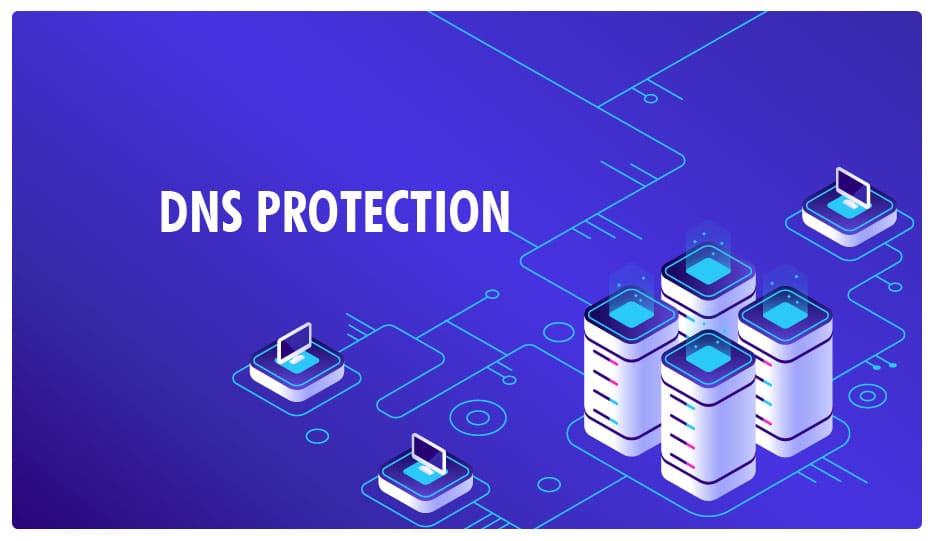
Protect Your DNS – How & Why?
DNS or Domain Naming System is a computer server which accommodates public IP addresses with their corresponding hostnames. A DNS server essentially contains a database which stores a mapping between hostnames and IP Addresses.
The standard naming convention for IP Addresses follows the dotted decimal format, for example: 228.237.175.64. For us, it is more beneficial to work with simple English names (for e.g. abc.com) which are easier to remember. This is where DNS Service comes into the picture. It maps between the two naming conventions to make intercommunication within networks more convenient. The process of mapping a hostname to its IP address is called DNS Resolution.
A DNS server is a powerful tool that enables setting rules spanning the network and enhancing Internet security for your organization.
Some Threats to DNS
Typosquatting
Attackers register their IP addresses with a domain name that is a slight variation of an existing popular brand. The primary aim of this attack is to steal traffic that would’ve otherwise gone to the original, legitimate website.
DDos
Distributed Denial of Service attacks (DDoS) can attack any part of your network, not just DNS. However, due to the nature of the attack (denying service and causing repeat service requests) the focused overload on DNS resolution can cause a serious network congestion.
Cache poisoning
Often, a DNS server will maintain a cache to service frequently requested resolutions faster. Attackers can inject fraudulent mappings in this cache which most probably resides with your ISP. This can direct your requests to servers under the attacker’s control.
There are many other threats that can target your DNS. Recently, Homeland Security issued an Emergency Directive advising US businesses to take steps to defend against DNS hijacking. Reposts state that FireEye and Cisco have found signs of growing DNS attacks.
How do I protect my DNS Server?
There are third-party services that provide DNS level protection. Some services offer free solutions, but it is always better to invest in a more sophisticated, trustworthy service plan for maximum security.
Once a service that fits your needs has been found, it is crucial to enforce it across all devices in the network. With the growing trends of a ‘Work from Home’ culture, it is also advisable to ask employees to secure their personal gadgets as well.
Some benefits of a DNS Protection Service
- Content Filtering: Block out unnecessary, unwanted websites through DNS database filtering.
- Protection against Malware attacks: Leave the task of identifying potential threats to a machine rather than people.
- Ad blocks: Boost your performance by barring repetitive advertisements from passing through your DNS.
- Protection against IoT breaches: Feed the data of known botnets of a SMART environment into the DNS database to forewarn against possible threats.
The easiest way to enjoy the benefits of a safe and secure DNS is to do everything well from Step One. And it all starts from choosing a proper DNS Server Service Provider.
Logix provides an efficient and stable DNS Server with high-level security measures to make sure your data is safe.
You can find all our offerings here.